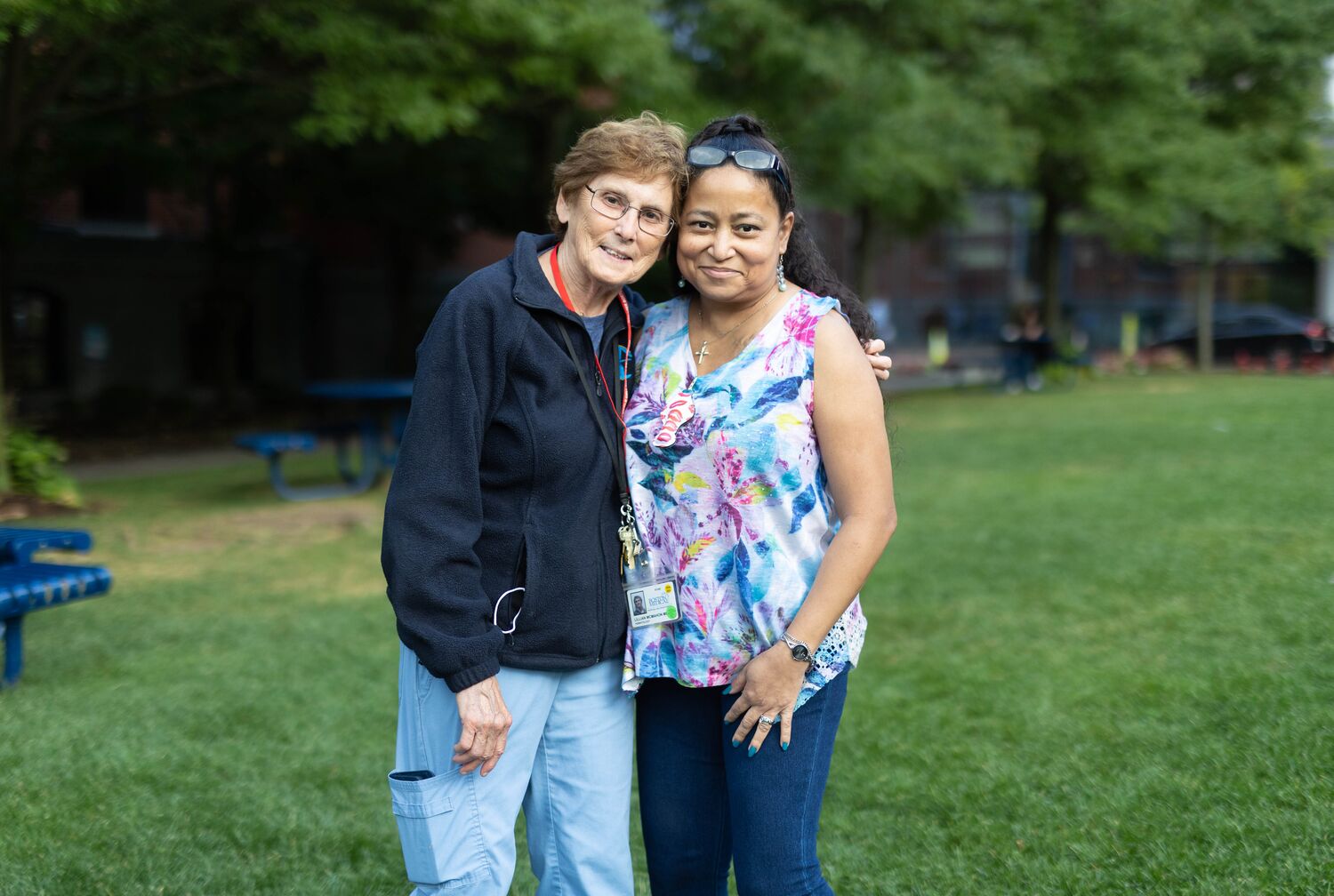
As a child in Puerto Rico, Helen became increasingly ill due to sickle cell disease - a debilitating, life-threatening condition that affects the body's red blood cells. Local hospitals didn't have the expertise to help her, so Helen's family knew they needed to return to Boston, where she found hope at Boston Medical Center.
From her teen years through adulthood, Helen had BMC hematologist Lillian McMahon, MD, with her every step of the way.
"Dr. McMahon is always looking for the best way to help me. Even when I am hospitalized, she goes above and beyond, communicating and guiding the team of doctors caring for me to keep my hospital stay as comfortable as possible," said Helen.
Helen has seen BMC's sickle cell program evolve over the years. She credits her care team for helping her learn to cope with her symptoms so she can have the best quality of life. BMC's multidisciplinary clinic, along with social workers and patient navigators, have made hospital visits easier for Helen.
Boston Medical Center is an important part of Helen's life. Not only did she meet her partner of 30 years at BMC, Helen's daughter and grandchildren are also patients. "Thanks to BMC, I am still here enjoying my family."
